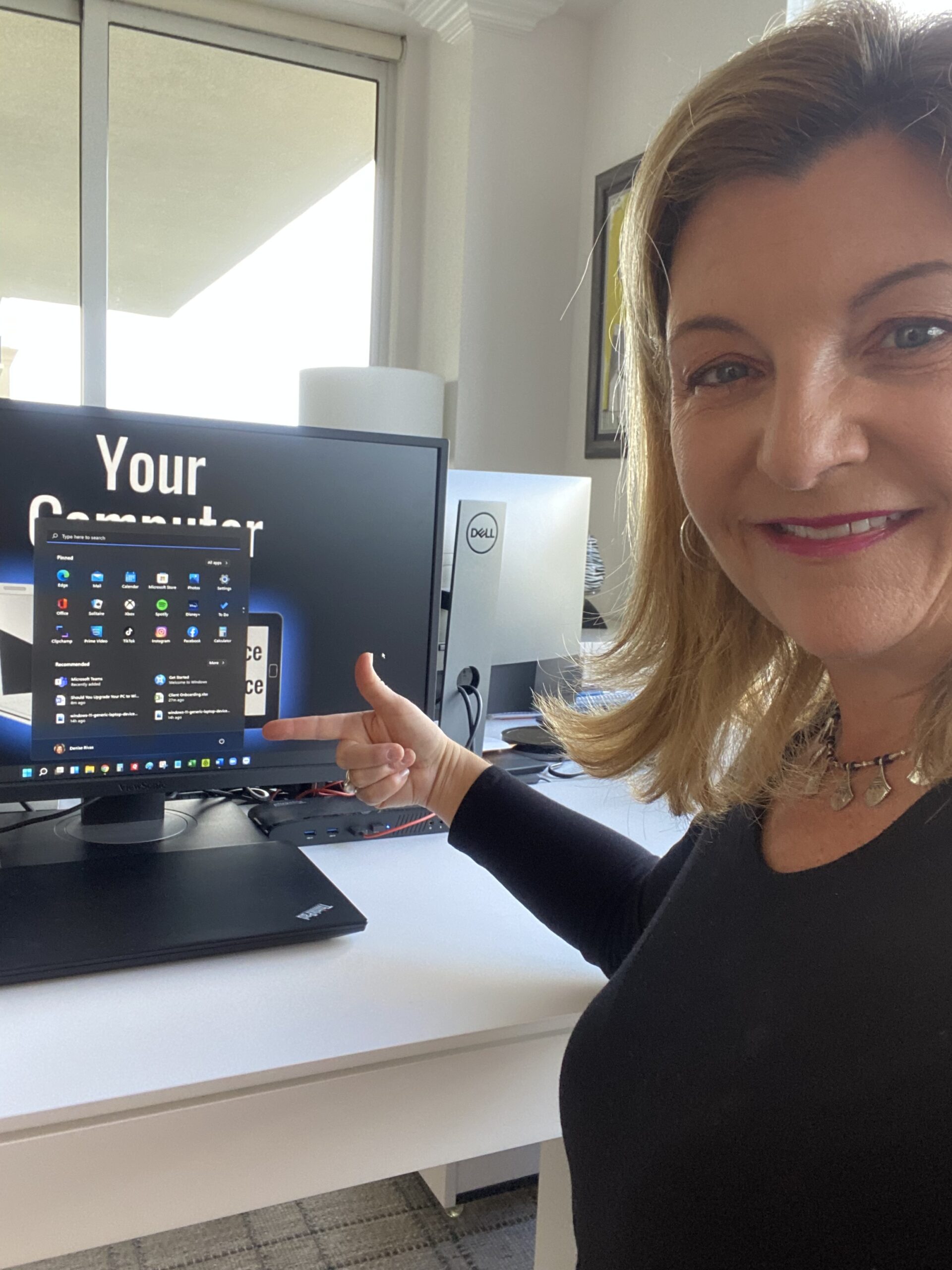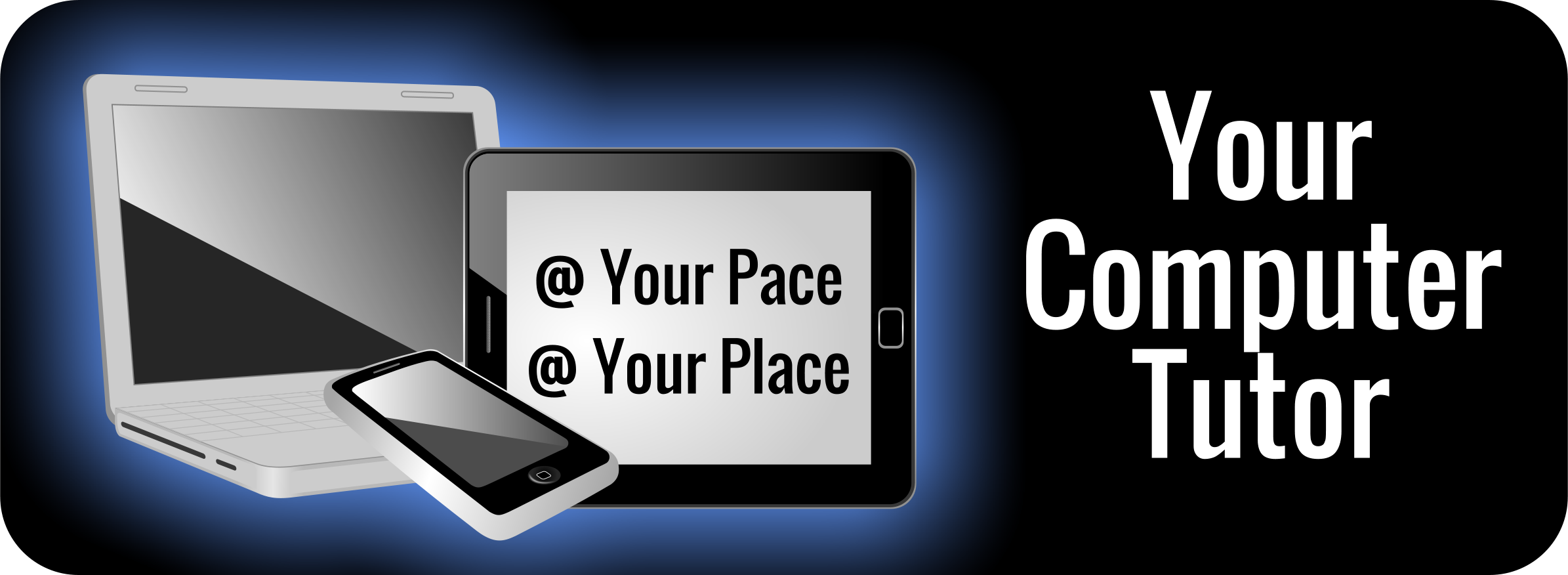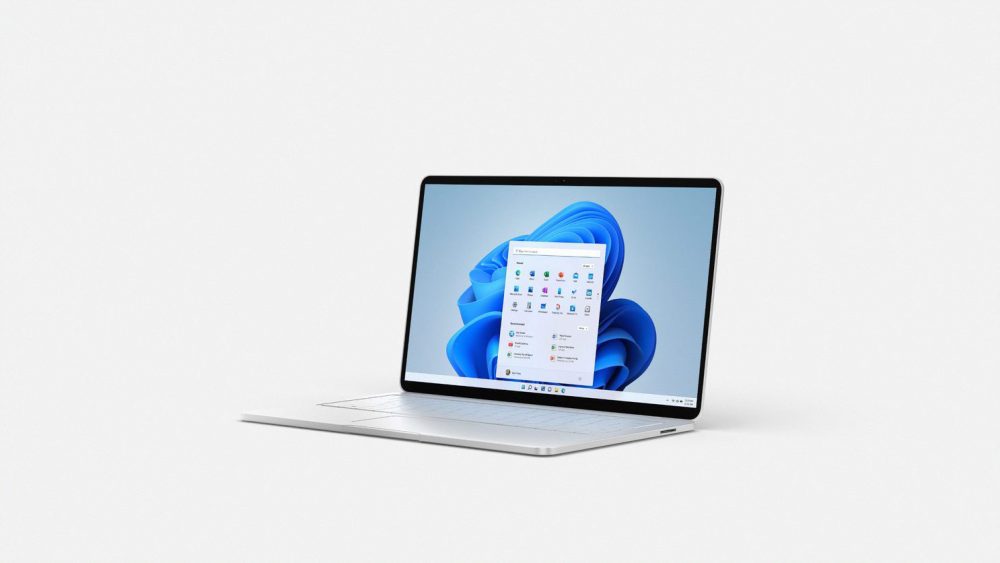Microsoft released its newest operating system, Windows 11, in early October, 2021. Many new PC’s are shipping with Windows 11 already installed. Windows 10 is what we see on most PC’s now, and it will be supported until October 14, 2025.
Your Computer Tutor took the Windows 11 upgrade plunge on her PC, with success, and is prepared for any questions you might have.

Windows 11 Upgrade Q&A
Q: Ugh; Do I have to?
A: Eventually, yes. Windows 11 is the future. Windows 10 will be supported by Microsoft until October 14, 2025. So, you have time before you MUST upgrade. Consider it optional…for now.
Q: Is it going to cost me?
A: It is currently a free upgrade. HOWEVER, the period during which this upgrade will be FREE is expected to be limited, with Microsoft expected to close this window later in 2022.
Q: What happens if I don’t eventually upgrade Windows?
A: When Microsoft stops supporting Windows 10 in 2025, PC’s still running Windows 10 will no longer receive bug fixes or security patches, and will become vulnerable to, well, internet cooties. Gradually, it might become inconvenient if not impossible to get things done on that computer.
Q: Can my PC even handle Windows 11?
A: The Windows Update section of your Settings should tell you if your computer is compatible with Windows 11. Some older PC’s may need to remain on Windows 10.
If your computer is simply not compatible with Windows 11, you would need to be ready to get a new one, with a then-supported version of Windows installed, by October 14, 2025.
Q: I run specialized software on my PC. Will it work with Windows 11?
A: Always check with your software’s manufacturer or its tech support website before making major changes like upgrades to your PC.
Q: What changes will I need to be prepared for?
A: Honestly, not much! The basics are really the same – nothing like the changes we saw when we went from Windows 7 to Windows 8 or 10.
I’d say that screens have a cleaner layout, and navigation is simpler. The start menu is now in the center bottom, rather than left bottom, of the Desktop. There are some new multitasking features.
Q: How long will my PC be tied up with the upgrade?
A: The upgrade takes a little over an hour to complete – this will vary. There are several stages to the upgrade and it will reboot a couple of times.
Q: Will the upgrade erase or reset my PC? Will I lose anything?
A: The upgrade is quite seamless; it does not overwrite your files or documents. It does not uninstall any of your software programs. It leaves you signed in to the services you were signed into before. That said, you should always have an up-to-date backup of your data, especially before making any major changes (like an upgrade) to your computer.
Q: Can I just do it now?
A: Maybe. If your computer belongs to or is maintained by your employer, they should handle upgrades and updates for you.
Even if you own and maintain your own PC, you may not be able to get Windows 11 on-demand yet, as Microsoft is rolling it out gradually to PC owners; when your upgrade is ready for you to consider, you’ll see a notification at the bottom of your Desktop in the System Tray. Once you see it there, then, YES!
Q: Enough with Microsoft and its upgrades. Should I just switch to a Mac?
A: If it’s change that you’re hoping to avoid, know that switching from PC to Mac would be a way bigger change than adjusting to Windows 11 from Windows 10. Besides, Apple’s Mac Operating System undergoes periodic upgrades as well, some of which also don’t work on older hardware.
That said, if you’re considering technology changes or purchases, please reach out to Your Computer Tutor to discuss what’s next for you.

